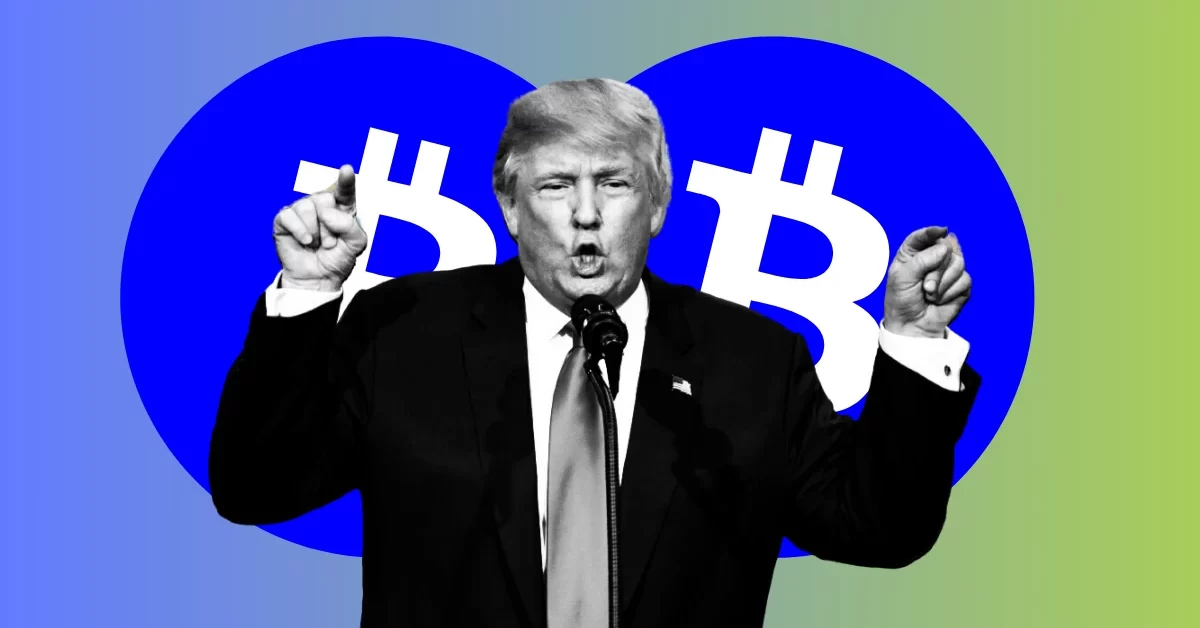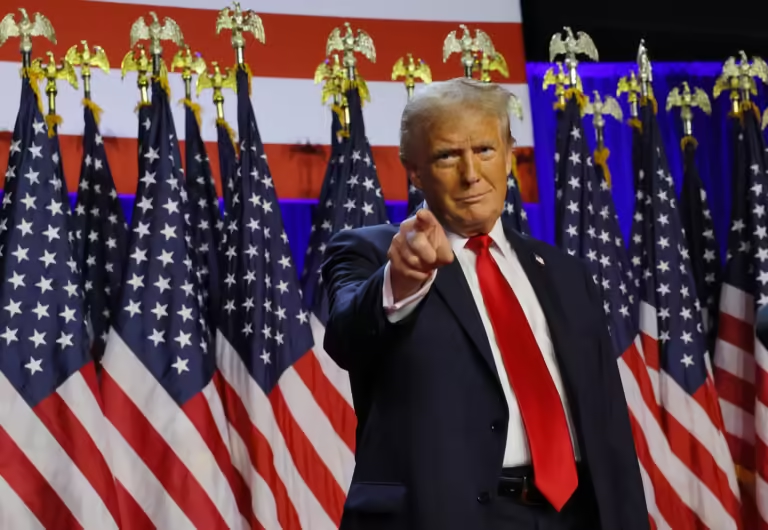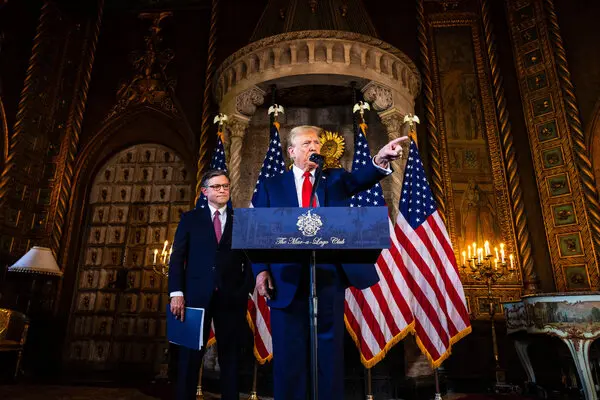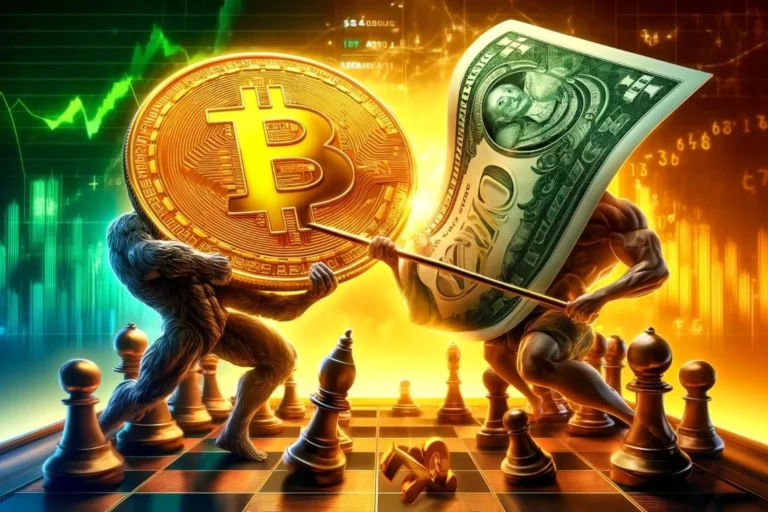Donald Trump has thrown a new idea into the crypto ring: the creation of a Bitcoin strategic reserve, positioning the United States as the global capital of crypto. While this might sound like an exciting promise to many Bitcoin enthusiasts, it’s not all smooth sailing. In fact, some experts believe it could shake the very foundation of the US economy—especially the strength of the dollar as the world’s leading reserve currency.
For crypto traders, this idea stirs up a lot of emotions. On the one hand, having Bitcoin legitimized by the US government would be a massive victory. But the story doesn’t end there—there are real risks that go far beyond just trading profits. Let’s dig deeper and explore how this policy could change the financial landscape for crypto traders and beyond.
A Bold Vision: The U.S. as a “Bitcoin Superpower”
In a July speech, Trump called for the United States to become the “crypto capital of the planet” and a “Bitcoin superpower.” It’s no surprise that Trump would make such a claim—he’s a politician looking to rally support from the ever-growing crypto community. The promise of a Bitcoin reserve would resonate well with traders and investors who are tired of traditional financial systems and believe in the decentralized future that Bitcoin represents.
For those in the crypto community, hearing a potential president talk about making Bitcoin a strategic asset is thrilling. After all, many traders dream of a world where cryptocurrencies are fully integrated into global finance, bypassing government control. Having a strategic Bitcoin reserve, backed by one of the most powerful nations on Earth, could dramatically boost Bitcoin’s credibility and adoption.
Imagine the US government holding Bitcoin, acknowledging it as part of its national financial strategy. That alone would send shockwaves through the crypto world, likely spiking prices and increasing demand for Bitcoin. Traders would rejoice! A dream come true, right?
Well, hold on a minute—because the reality might not be so rosy.
The Risk: Undermining the U.S. Dollar’s Power
While Trump’s proposal might light a fire in the crypto community, it could also lead to massive challenges for the U.S. dollar. To fully understand the risks, let’s think about what makes money, particularly the U.S. dollar, valuable.
Money is more than just pieces of paper or digital numbers in your account. It’s a reflection of a nation’s strength, its productive capacity, and its trustworthiness. People worldwide accept dollars because they trust in the U.S. economy and its ability to produce goods, services, and maintain political stability. The U.S. dollar has long been the world’s reserve currency because of the economic and financial power of the United States.
But here’s the kicker: this trust could be at risk if the U.S. starts promoting Bitcoin too heavily. Why? Bitcoin and the dollar represent two different financial systems. The dollar is controlled by the government, while Bitcoin is decentralized and not subject to any national control.
The U.S. can’t print more Bitcoin if it needs to fund public projects, offer tax cuts, or stimulate the economy during a recession. Bitcoin’s limited supply is a key part of its appeal, but it’s also a reason why governments can’t rely on it the way they do with fiat currency. If Bitcoin were to gain too much traction, people might start to lose faith in the dollar—especially in a country where debt levels are already sky-high.
Today, the U.S. national debt stands at over $35 trillion, with the government spending far more than it collects in taxes. As the U.S. continues to print more dollars to cover its deficits, people might start questioning the value of the currency itself. Some analysts are already worried that the dollar’s reputation as the global reserve currency is slipping. If that happens, and if the U.S. government begins hoarding Bitcoin as part of its reserves, we might see a world where confidence in the dollar erodes even faster.
For crypto traders, this scenario presents an interesting but risky opportunity. Sure, Bitcoin prices might surge as it becomes a major strategic asset, but the broader implications for the global economy could be damaging. An unstable U.S. dollar could send shockwaves through markets everywhere, affecting everything from stocks to real estate.
The Political Play: Tribalism and Crypto Endorsements
Trump’s push for a Bitcoin strategic reserve is a smart political move. He knows that the crypto community is passionate and growing, and gaining their support could boost his campaign. Crypto enthusiasts often see themselves as part of a movement that’s challenging the status quo, and Trump’s rhetoric plays right into that.
But the writer, Vitaliy Katsenelson, warns that we shouldn’t let political tribalism cloud our judgment. This isn’t just a game of winning votes—it’s about the future of the U.S. economy. Katsenelson points out that Trump is using this promise to align himself with the “crypto bros,” gaining their support while ignoring the potential long-term consequences for the nation’s financial stability.
In other words, this is not a game we can afford to play lightly. The U.S. should be focusing on stabilizing its debt and ensuring the strength of its dollar, not endorsing alternatives like Bitcoin that could further complicate things.
A New Narrative: Could Bitcoin Replace the Dollar?
Here’s where things get really interesting. Bitcoin’s rise isn’t just about technology—it’s about a new story. In finance, stories are powerful. The U.S. dollar became the world’s reserve currency because people believed in the American dream, the country’s democratic values, and its free-market economy.
But that story is starting to fade, as the U.S. faces political dysfunction, rising debt, and increasing inequality. People are beginning to look for alternatives. Bitcoin, with its decentralized and borderless nature, offers a compelling narrative for many people who have lost faith in traditional financial systems. In this way, Trump’s Bitcoin reserve idea taps into that growing sense of disillusionment.
However, Katsenelson argues that promoting Bitcoin as a government-backed reserve would legitimize it further, potentially speeding up the decline of the dollar. And while it’s unlikely that Bitcoin will fully replace the dollar anytime soon, it could erode its status as the world’s dominant currency. Other countries are already exploring alternatives, including digital currencies of their own.
For the U.S., this is a crucial moment. Rather than promoting Bitcoin, Katsenelson believes that the next president should be the dollar’s biggest advocate. The focus should be on restoring trust in the U.S. financial system, managing debt, and ensuring that the dollar remains the best option for global trade and reserves.
What Does This Mean for Crypto Traders?
So, where does this leave you, as a crypto trader? Well, there’s no doubt that Trump’s idea of a Bitcoin strategic reserve could send Bitcoin prices soaring in the short term. If the U.S. government officially backs Bitcoin, we could see an influx of demand, pushing prices up dramatically. Traders would likely profit from this initial boost.
However, it’s important to stay grounded. The broader economic consequences of this policy could be severe. The potential weakening of the dollar might lead to market instability, affecting other assets and investments. In other words, it’s not just about Bitcoin anymore—this could impact everything from stocks to bonds to housing prices.
Traders should keep an eye on these developments, but also approach them with caution. While there’s money to be made in the short term, the long-term effects on the global economy could be unpredictable and far-reaching.



